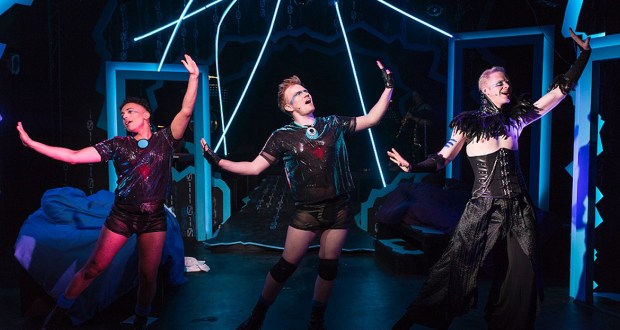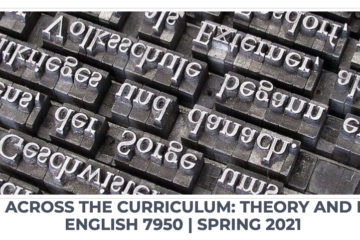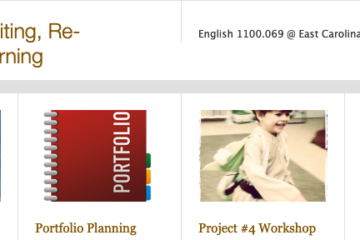 Last night, I got to see Grindr: The Opera at the Above the Stage theatre in Vauxhall, South London. I’ve seen several shows over the last few years at the Above the Stag theatre, but this is one of their first shows in a new and much improved (and air conditioned) theatre next to the Charriots gay sauna — and the new space is really wonderful. Sat in the front row, Rick, Andrea, and I missed little that happened on the stage. Each of the four main characters emerged from picture-frames that suggested their profile pics on the Grindr site. The guys didn’t start on Grindr, but on laptops where they were looking for love/action on Manhunt.com. In swoops the operatic angel-devil himself, Grindr, complete with feathered epaulets, a leather girdle/bustier, and four-inch heals. Grindr has come to change their archaic little love-hunt ritual into something very different, complete with geo-positional men who want to be with you.
Last night, I got to see Grindr: The Opera at the Above the Stage theatre in Vauxhall, South London. I’ve seen several shows over the last few years at the Above the Stag theatre, but this is one of their first shows in a new and much improved (and air conditioned) theatre next to the Charriots gay sauna — and the new space is really wonderful. Sat in the front row, Rick, Andrea, and I missed little that happened on the stage. Each of the four main characters emerged from picture-frames that suggested their profile pics on the Grindr site. The guys didn’t start on Grindr, but on laptops where they were looking for love/action on Manhunt.com. In swoops the operatic angel-devil himself, Grindr, complete with feathered epaulets, a leather girdle/bustier, and four-inch heals. Grindr has come to change their archaic little love-hunt ritual into something very different, complete with geo-positional men who want to be with you.
I wasn’t really prepared to enjoy it as much as I did, perhaps because I assumed it would be a somewhat vapid exploration of a simple hook-up app. Perhaps that’s why the composers went operatic — to capture the melodrama of Grindr, the way the app can condense physical and sexual connection, maybe even emotional connection, into such a tight encounter, not just tight by geo-location, but certainly that’s part of it. The characters are types, but realistic: the twink who is looking for quick release and who is willing to take a number of questionable risks to find pleasure; the conservative (Tory) daddy who has a wife and son at home but wants to choke a twink in a strange revenge fantasy that condemns all those boys from his public school who treated him badly; the middle-class doctor with the NHS who works with a lot of gay men, who’s not judgmental except he is, and who can’t be sexually or emotionally versatile; and the pretty-boy date who loves him and makes a strong effort at monogamy, until the doctor is unwilling to let his lover be more than a one-dimensional bottom.
Much of the show focuses on these last two, how they meet on Grindr, how that’s a source of embarrassment for the doctor (Devon), and how they make a pretty good go of it until their sexual incompatibility becomes too pronounced to ignore and Tom downloads Grindr again to find a boy he can top for a night. “You Can Leave” captures the tension and anxiety and excitement and fun of a first Grindr “date,” I think. This version, available on Vimeo, isn’t 1/10th as good as what we saw last night — honestly, the Stag cast should do a cast album because what’s available online is mostly high school musical quality. Ugh.
While Rick wanted these boys to stick it out, that’s not a very operatic option, nor does it seem to me a very Grindr option. I’ve not done my research here, but I’d imagine that there are few folks on Grindr who think it’s a path to heteronormative monogamy and a stable relationship. I’m thinking folks who look for that are looking elsewhere. Maybe I’m being unfair — and no doubt such things can happen online, either on Grindr or Growlr or Bro or Scruff or Tindr, or whatever. Part of what the opera and the character Grindr got right was in showing how networked spaces act with intention, how they marshal affect to evoke a networked subjectivity that can shape action. By personifying the network, Grindr is seen as manipulative and enticing, as connecting so many lonely souls but in ways that are mostly fleeting or harmful, sometimes simply be being unclear and imprecise. While liminal spaces, queer spaces, are really enticing theoretically, I think these are not easy spaces to live in or to embody. In their beautiful freedom is the reality that no one is there to be tied down, connected, grounded — and even if you are there for those things, you cannot trust that others are there for those things. Every scene in the show last night seemed to be pulsing with the potentiality of the next score, particularly as Grindr sings in between the different scenes and uses his henchmen to turn the heads of the lovers, the trolls, the twinks, and the rest equally. From the beginning of their relationship, though, Tom worries that Devon isn’t there for love or commitment, wonders if he shouldn’t keep an iron in the fire, so to speak, and stay active on Grindr.
I’m envious that some theatre queen already has the website “West End Wilma” but I think that Wilma has the show right when she notes that Grindr represents “a sentient and ever-present figure within the show, highlighting the app’s ability to take over our lives.” I’m not quite as nihilistic as that, though, about the app itself or the world of hook-up culture in the end — though I recognize that the ways the app encourages hook-ups and momentary passions can also encourage men to be less worried about sexual health, I’m not sure it does anything particularly new for sexually virile men who have had lots of access to all sorts of sex throughout history. I left the play wondering more about what this show says about how we’ll mark parts of our lives differently with digital and geo-spatial access to sex: will we start to have a pre-sexual age (pre-puberty), a sexually emergent age (puberty), a sexually engaged age (late adolescence and early adulthood), and then an age that is much less governed by sex itself. At 46, I’m starting to wonder about that next age, not post-sex so much as post-sexually-focused. And I’m wondering if the idea of long-term monogamous relationships that represent heteronormative models is meeting its match at the moment. For many gay men, perhaps the 20s and 30s will be primarily about sexual relationships, or open/non-monogamous relationships, while the 40s and 50s will be spaces where we consider relationships that are about other things, not that sex or sexuality or eroticism aren’t still part of them, but perhaps they have less controlling roles in those spaces.
Watching the writers’ takes on Grindr/digital hook-up cultures made me think a good bit about how hard it is to understand what love means, how hard it is to imagine love (and sex and eroticism) outside of certain cultural and normative frameworks, and why we hold on to those frameworks even when so much experience says to let them go.


